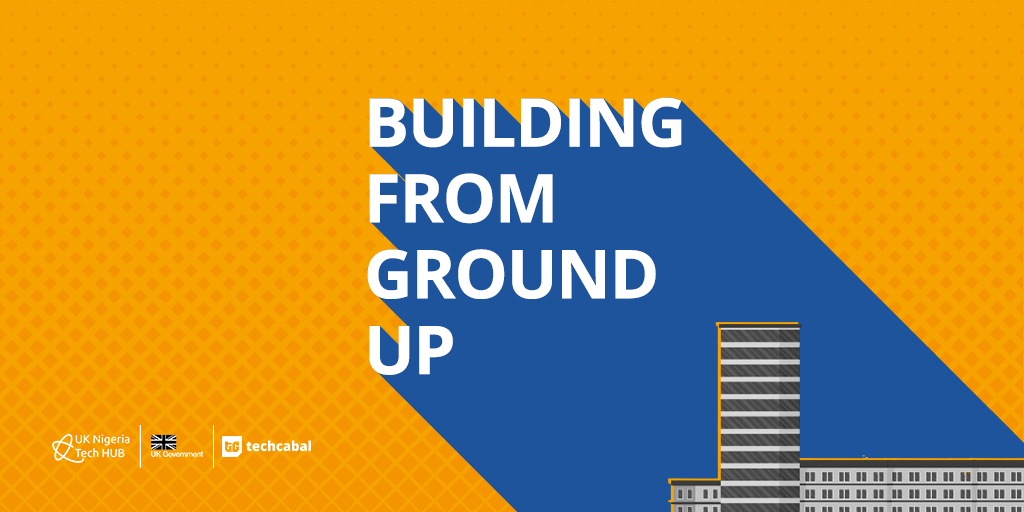On Friday, September 25, UK Nigeria Tech Hub’s new podcast series “Building from Ground Up” put together in partnership with TechCabal hosted Dr. Ola Brown, the founder of Flying Doctors Healthcare Investment Group. She is also a director at Greentree Investment company.
One of the reasons we spoke to Dr. Brown was to get a sense of how she built Flying Doctors from the ground up. If you’ve ever tried to build anything, you know the level of work required.
Her efforts in building Flying Doctors healthcare are twice as impressive because she was essentially building a business that didn’t exist in Nigeria and there were no Nigerian examples to learn from.
So how did she do it?
From the jump, Dr. Brown promised an honest conversation. “The thing about entrepreneurs relaying their stories is that they tend to edit a lot,” she says.
“I am not trying to edit mine.”
Instead, she says that starting Flying Doctors was a practical decision that was based on the commercial opportunity. At a time when she was earning £23,000 after tax, she knew she could make more than that from one ambulance trip.
Yet, knowing that there’s an opportunity is often a small part of success for any entrepreneur, there’s also the element of luck.
“There’s always a bit of luck in these stories. For me, that bit of luck was moving to Tokyo and getting mentorship from my friends who were always talking about finance. Through that, I got some of the validation I needed. I decided that instead of going back to London at the end of my fellowship, to move back to Lagos.”
What did these conversations with her friends in Tokyo sound like and what were her concerns?
First she needed to know if there was a gap in the market. More importantly, she needed to be sure that there you could build a market in that gap. That distinction is important, because too many times, we can spot obvious market gaps, but those gaps may not have the kind of addressable market you can build a business on.
The reason why it’s important to know these distinctions is that sometimes, starting out is hard, and what you know may be the difference between throwing in the towel or keeping at it.
Dr. Brown shared that it took the company nine months to get their first customer. Yet, in B2B ventures like hers, you only really need a few clients to pay your bills. If you’re a B2C business, look away now, you’ll probably need hundreds of clients to even break even.
Does this mean B2B businesses are easier?
“In countries like Nigeria with high levels of poverty, people may want what you’re offering but may not be able to afford it. So, in some respect, B2B may be easier, but most times, B2C businesses are more likely to become unicorns.”
Yet, one issue B2B and B2C businesses still have in common is funding. If you serve corporate customers, you’ll know about those pesky 60-90 day payment cycles.
You’ll also know that these monies pile up quickly. One day you’re all kosher and the next day, you have millions of dollars in your accounts receivable.
“At some point, I found myself in front of a bank manager after I had gotten into a cash crunch. He helped me to restructure my business and months down the line, I saw a course on Coursera that shows you eight models for customer funded businesses.”
Despite some early challenges, one of the things Dr. Brown did not struggle with was credibility.
“When you have a degree in Medicine and Surgery, people automatically assume you’re smart. People think you must know what you’re talking about.”
According to Dr. Brown, for those of us without degrees in medicine, credibility could come from being members of some associations, some qualifications, as well as what you write and produce. Don’t be afraid to leverage on your family name or network for credibility. “If you’re not the one leveraging on your family/network, then an external person will inherit that credibility”
Having credibility means you’re more likely to get helpful introductions. You may also find that people are more willing to stick out their necks for you.
It’s a point that a few people in our audience found relatable and during the Q&A session, we had some interesting questions that helped us segue into other topics.
One of those questions was about the difficulty of doing business in Africa as well as the difference between online and offline models.
“Starting with online models but having to build physical infrastructure along the way is a trend in developing countries. Don’t be afraid to invest in infrastructure if you have to, if that is line with your strategy.”
A lack of infrastructure is a common problem in Africa, yet Dr. Brown says there’s an even bigger problem; evil forces.
“There are two sets of forces acting on your business; the market forces and the evil forces. What I mean by evil forces are things that kill your business that aren’t market related. Policies, infrastructure gaps. In Jim Ovia’s first book, he mentioned that one of the problems with one of his first branches was that people couldn’t get there. He had to build the road.”
Unlike in Nigeria, the average person in London worries about currency fluctuation or inflation.
How do these kinds of considerations affect how Dr. Brown thinks of investing and what does Greentree Investment company think about investing.
“We look at ideas, the macroeconomics and how well they’re hedged. Like any sort of transaction, the most important thing is the character of the person and the level of integrity the person has. Investing in a company is like getting married. As investors, we are in the business of integrity.”





















